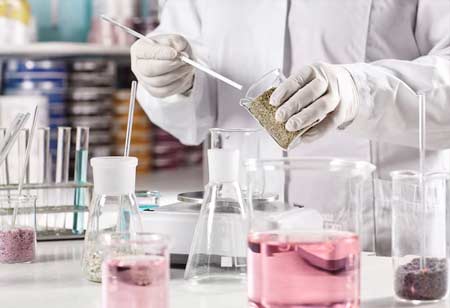Fremont, CA: The specialty chemicals industry is crucial in shaping the future, influenced by significant trends and technological advancements. This sector actively produces chemicals that serve as active pharmaceuticals, agriculture, automotive, and electronics agents. Driven by the demand for sustainability, enhanced performance, and technology integration, specialty chemicals respond dynamically to changing industrial landscapes and global needs. As new demands emerge, this field delivers innovative solutions that transform chemical manufacturing processes, distribution methods, and applications.
Environmentally motivated issues demand greater regulation by the specialty chemicals industry, which is changing fundamentally. Innovations in this area include the concepts of green chemistry and renewable raw materials that minimize harmful substances and maximize energy efficiency. Biobased chemicals-sustainable alternatives based on renewable biomass sources, such as plant biomass-are increasingly being developed to substitute traditional petrochemicals. These innovations reduce the carbon footprint of chemical production and form part of a global push for a circular economy. In this world, waste is minimal, and products are reused or recycled.
The specialty chemicals sector embraces digital technologies, particularly Industry 4.0, to optimize production processes. This includes automation, data analytics, and artificial intelligence. Smart factories are emerging, using advanced sensors and real-time data collection to improve safety and reduce downtime. Digital twins create virtual models of physical assets, predicting maintenance needs and enhancing product quality. Machine learning algorithms and big data analytics streamline research, reduce costs, and improve market response speed.
A pandemic like COVID-19 has shed light on the disinfectants, sanitizers, and other chemicals that protect public health. Chemicals that perform well are increasingly needed but address safety, hygiene, and biocompatibility concerns. Innovations include antimicrobial coatings, antiviral agents, and sustainable formulations that are environmentally friendly yet highly efficient. Increasingly, these products play a significant role in healthcare, food safety, and personal care sectors. Specialty chemicals continue to become more integrated into advanced materials and applications that drive the innovation of the electronics, renewable energy, and automotive industries.
For example, specialty chemicals are used in electronics to develop high-performance semiconductors, flexible displays, and electronic components. In the renewable energy sector, specialty chemicals are used to create efficient solar cells and energy storage systems; sustainable solutions are also directed toward lightweight, high-strength materials for electric vehicles (EVs) in the automotive industry. Hence, with an increasing focus on energy efficiency and lower carbon emissions, demand for advanced chemicals that improve the performance and sustainability of these technologies will be boosted.
The specialty chemicals sector is shifting towards collaborative innovation, where companies partner with academic institutions and other industries for new product and solution development. This approach promotes expertise sharing, accelerates technology commercialization, and addresses industry challenges such as sustainability and performance improvement. Open innovation platforms and incubators are crucial for fostering creative solutions and accelerating product time-to-market.

